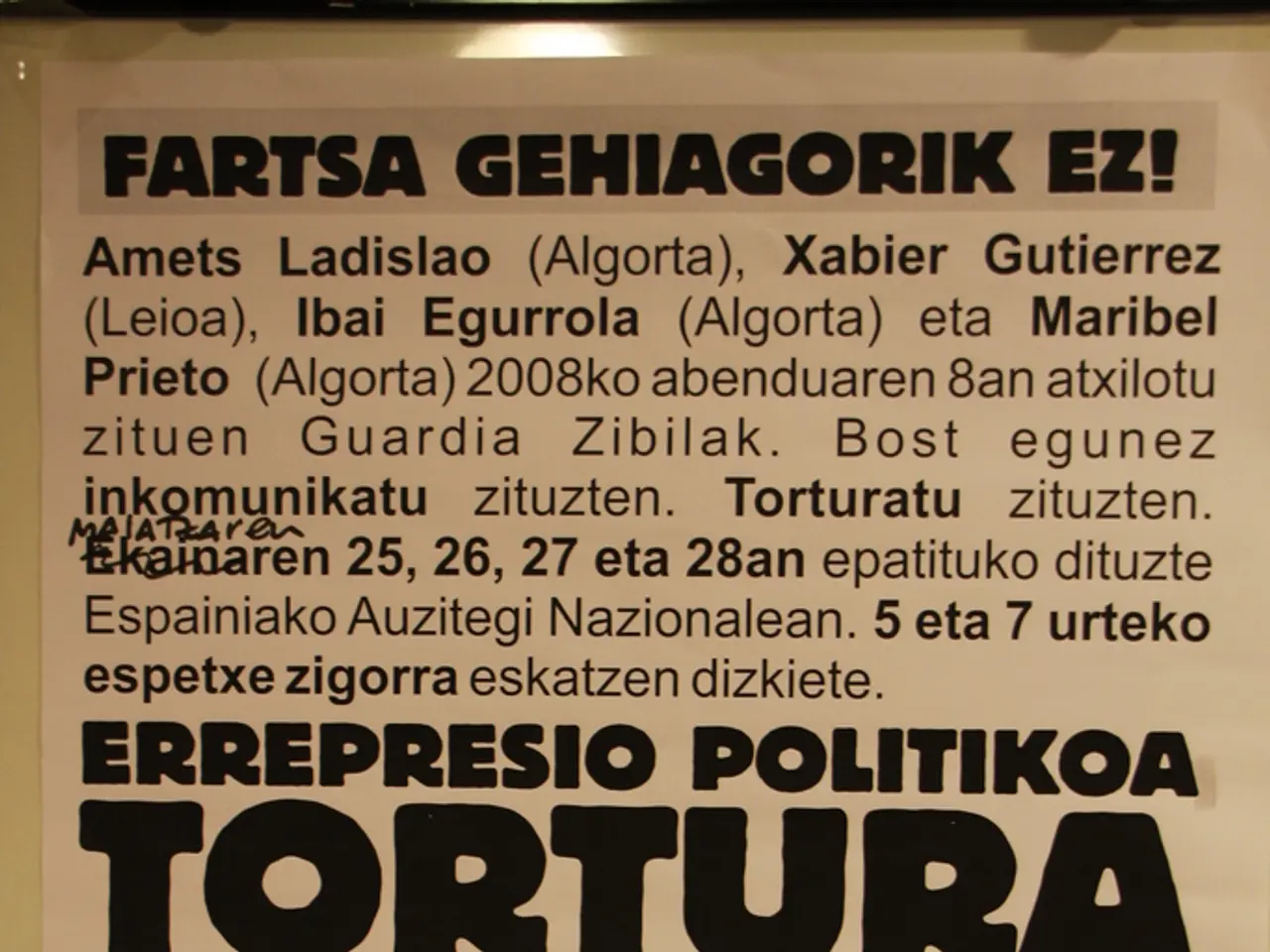Colombian Presidential candidate Miguel Uribe succumbs to injuries sustained during a June campaign shooting.
In a shocking turn of events, Colombia's political landscape is experiencing a significant shift following the assassination of Senator Miguel Uribe Turbay. The incident, which occurred on June 7th in Bogota's Modelia neighbourhood, marked the capital's biggest demonstration in over a decade as thousands of Colombians marched in support of Uribe Turbay and against violence.
Uribe Turbay, a 39-year-old presidential hopeful, was shot in the head while speaking to supporters. The immediate gunman was a minor who claimed he acted for money, for his family. He was apprehended at the scene after being beaten by bystanders. Authorities consider this suspect the material perpetrator, but investigations are focusing on uncovering the broader organizers and conspirators behind the attack.
A leading line of investigation points to the Segunda Marquetalia, a dissident faction of the former FARC guerrilla group that rejected the 2016 peace agreement, as the possible mastermind behind the assassination. Intelligence reports and confidential briefings indicate investigators are analyzing communications and financial transactions potentially linking this faction to the planning and financing of the attack. However, these findings remain circumstantial, and official public confirmation has not yet been made.
The former president, Álvaro Uribe Vélez, expressed condolences and wished for Uribe Turbay's struggle to illuminate the right path for Colombia. US Secretary of State Marco Rubio also expressed solidarity with Uribe Turbay's family and the Colombian people. Colombian vice-president Francia Márquez expressed sadness over the situation and called for an end to violence.
Uribe Turbay's academic background is impressive, having studied at Bogota's Universidad de los Andes and Harvard's Kennedy School. His death two months after being gunned down while campaigning in Bogota is being seen as the starkest sign yet that Colombia's stability is unravelling a year before President Gustavo Petro is set to leave office.
The 2026 presidential race in Colombia so far lacks a clear frontrunner, and Uribe Turbay's assassination is likely to reshape the race. Candidates hoping to defend President Petro's legacy may be potentially sideline due to the incident. The investigation into Uribe Turbay's assassination is ongoing, and six people, including a teenager formally charged with attempted murder and illegal possession of a weapon, have been detained in connection with the crime.
The assassination of Uribe Turbay is a grim reminder of the organized crime targeting mayors, lawmakers, and social leaders that is common in Colombia, Mexico, and Ecuador. It also brings back painful memories for Uribe Turbay, whose mother, journalist Diana Turbay, was kidnapped and subsequently killed by Pablo Escobar's Medellín cartel.
Defense minister Pedro Sanchez said that institutions will continue to work hard to identify and bring to justice all those responsible for Uribe Turbay's attack. As the investigation continues, the Colombian people await answers and justice for this tragic loss.
The assassination of Senator Uribe Turbay, a presidential hopeful, has resulted in a significant shift in Colombia's political landscape, as the possible mastermind behind the attack is a dissident faction of the former FARC guerrilla group, the Segunda Marquetalia. This incident, coupled with the ongoing turmoil and absence of a clear frontrunner in the 2026 presidential race, suggests that Colombia's stability may be unraveling, underscoring the critical need for effective crime and justice measures and general-news reporting to keep the public informed on political developments.






